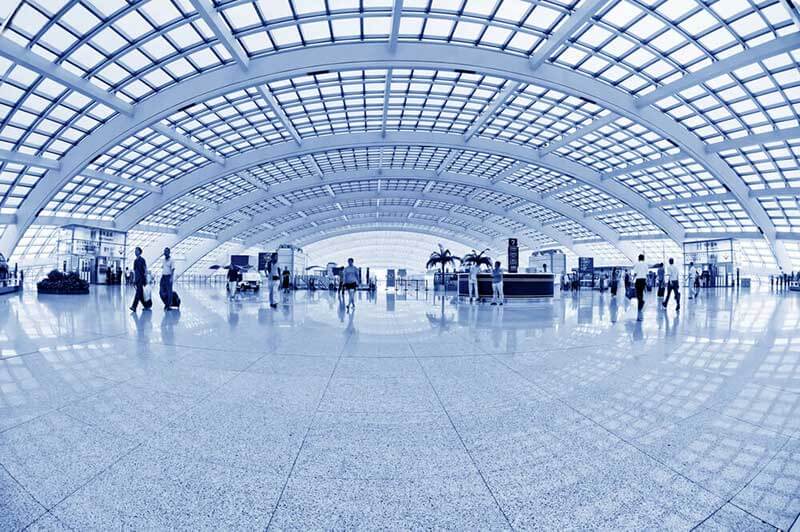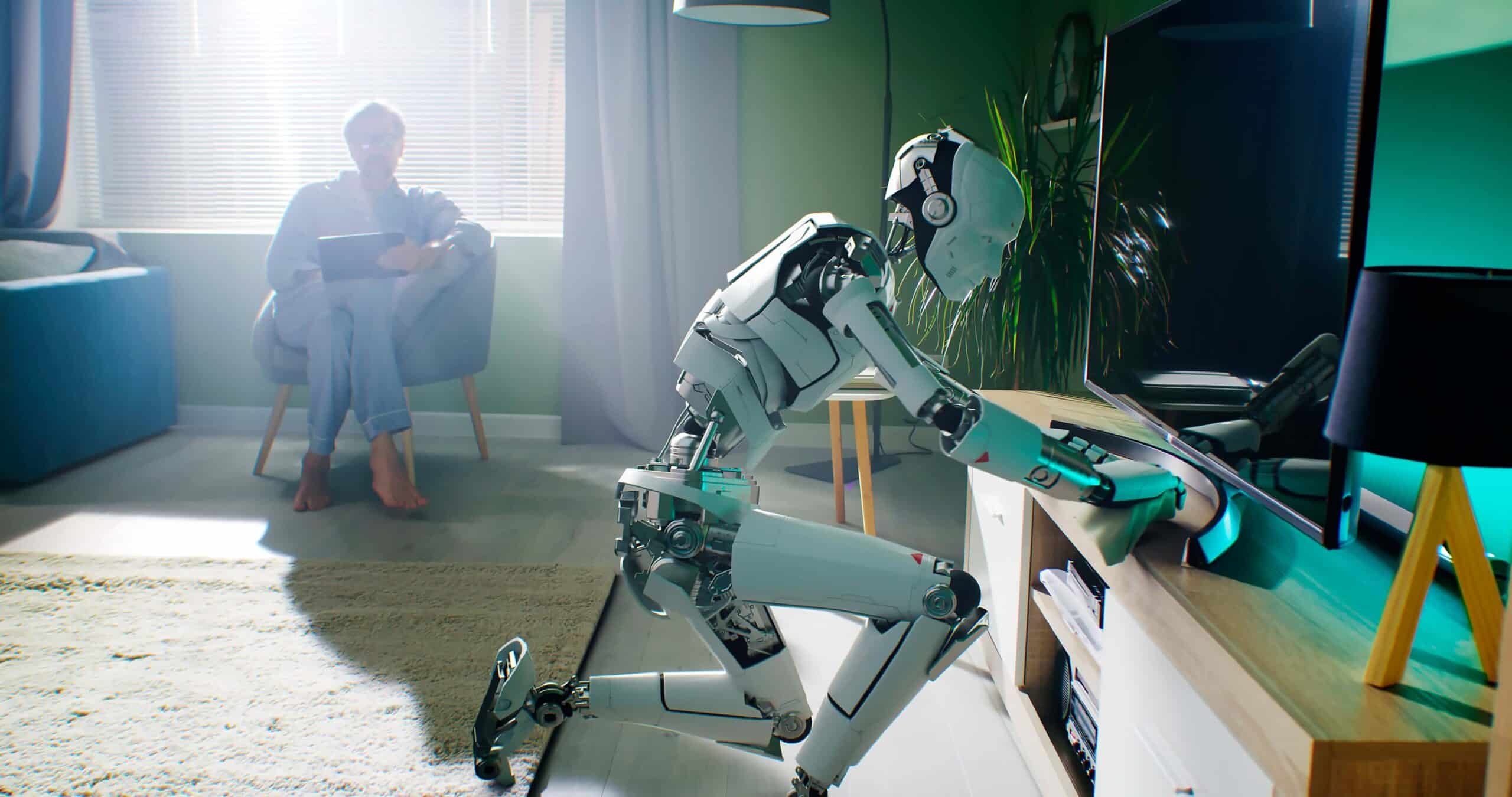- Bigger is better – mega airports will evolve into hi-tech pleasure domes
- The Hop! remote-controlled suitcase makes lugging your luggage around a thing of the past
- Shape-shifting furniture – the hotel room of the future takes personalised service to the extreme
- Physical travel not for you? Virtual reality could be even better than the real thing
How will we be holidaying in the future? Advances in technology may see us travelling to previously unexplored destinations. We might journey deep into our oceans and stay at underwater hotel rooms. We could be staying at sky resorts with zero-gravity spas or at space observatories where you can experience weightlessness. Hotels will be providing unprecedented levels of personalisation and tailor-made overnight experiences. Think shape-shifting hotel beds or vitamin C infused showers to provide relief for jet-lag. For those who are physically unable to travel or prefer to stay at home, virtual reality may offer a plethora of exotic travel experiences as well.
Bigger is better – mega airports will evolve into hi-tech pleasure domes
According to Airports Council International, 2015 saw in excess of five billion travelers pass through the world’s airports. With the world population currently sitting at around seven billion, five billion travellers is a lot. With this trend continuing, airports of the future will be even bigger and many times more efficient. Travellers enjoy the connectivity many airports already provide. It enables them to keep in touch with the office while splurging on a great meal and an even better glass of wine before jetting off into the sunset. Airports around the globe are continuously reinvented and are evolving into places where people actually enjoy spending time. Passengers are directed to their gates by beacons giving GPS-type directions, while robots check your bags and deliver them to you after you land. The airports of the future will be sustainably designed and operated in order to increase energy and water efficiency and reduce carbon emissions. From small villages with shops, food courts and sleeping pods, the airports of the future will evolve to be largely solar powered and include golf courses, spas and hotels. Singapore’s principal airport, for instance, will be boasting garden spaces, featuring beautiful nature trails, recreational areas and even a waterfall, called ‘the Vortex’. Its water, of course, being recycled to be used throughout the buildings. It’s not difficult to see that some of the world’s biggest airports could actually become tourist destinations in their own right.

The Hop! remote-controlled suitcase makes lugging your luggage around a thing of the past
Having to schlep around hand luggage and even wheeled luggage can make travelling exhausting, especially for disabled people and families with small children. Spanish designer Rodrigo Garcia Gonzalez designed the Hop! – the first ever remote controlled suitcase, especially built for a hands-free generation. With special receivers and microcontrollers, this smart suitcase is able to communicate with your smartphone. With its caterpillar system, powered by compressed air, it can follow you wherever you go. It can even be programmed to follow other Hop! bags. If it stops following you because the connection with the suitcase is lost or interrupted, it sends an alert to your smartphone. Then the suitcase automatically locks itself to prevent others from running off with the contents.
Shape-shifting furniture – the hotel room of the future takes personalised service to the extreme
In the future, travellers will not have to deal with any human beings whatsoever. Within ten years from now, hotels will have turned into magical, hyper-interactive, endlessly customisable spaces. Hotel rooms will have fully interactive walls displaying any type of high definition image or video of your choosing – provided by your laptop or smartphone. They will enable you to place Skype calls. Built-in electronics will enable your pillows to give you a relaxing massage or even gently wake you in the morning. Your wet shower will provide vitamin C infused water to help you clear your jet-lag and de-stress you. Your dry shower will make use of sound technology in order to ‘agitate’ the dirt off your body – no soap required. Of course, as soon as you are clean, de-stressed and freshened up, a light indicator will let you know you’re ready to start your day. Then there’s ‘claytronics’, programmable, bleeding-edge technology that enables furniture to shape-shift and change texture. A combination of nanoscale robotics and computer science, claytronics integrates sound, sight and feel, enabling users to physically interact with furniture. Made up of minuscule robots, your comfortable claytronic sofa will morph into a bed at night – or whenever you need a nap. The technology also allows you to change your bed’s degree of comfort – from a soft to a hard mattress. This technology provides endless possibilities and is great for conserving space.
Physical travel not for you? Virtual reality could be even better than the real thing
For people who are unable to travel physically or those who prefer to have a holiday experience from the comfort of their own home, virtually reality can offer unprecedented possibilities. With technology rapidly developing, virtual reality may even render actual, physical holidaying obsolete. Virtual travel would have no environmental impact and it would be much cheaper. In order to keep astronauts physically and psychologically healthy while in space, NASA already provides their astronauts with virtual holidays. They can spend time in virtual worlds to dive coral reefs, walk through beautiful forests, visit night clubs or visit family members. For ‘ordinary people’, virtual reality may be a great option for travelling to remote places. Imagine climbing the Mount Everest or exploring the deepest caves on earth, all from the comfort of your home? While the virtual reality market may initially develop with enthusiasts, it will eventually transform the tourism industry. As the market gets bigger, the technology will become more sophisticated and the devices smaller.
The Ocean Rift, an app for the Samsung Gear VR mobile device, was specifically designed for exploring the depths of the oceans. It showcases different techniques and experiments with various sounds and particle systems such as bubbles and dust in order to simulate a vivid underwater experience. The virtual underwater experience enables the user to explore beautiful underwater plant life and swim with ocean animals such as dolphins, tropical fish, turtles, sea snakes and whales. In its deepest, darkest environment, Ocean Rift even lets you get acquainted with an enormous prehistoric shark.
The digital travel buddy will take the stress out of holiday planning
While travel comparison sites do a great job at easing the stress of holiday planning, the future will see travellers engaging the help of a personal travel buddy. Within five to ten years, every holiday maker will have a digital travel agent – an artificial intelligence device – which is constantly connected to the internet and accompanies us wherever we go. Neatly tucked away inside a piece of jewellery or a watch. Your travel buddy will appear as a hologram and you can set the device to resemble and sound like your favourite actor or pop star – it will even understand you facial expressions. You can instruct your travel buddy to inform you only of those places that interest you, based on the likes and dislikes it gathers from your previous input. You can constantly engage with your travel companion, fine-tune your journeys and troubleshoot any problem situations that may arise, in real time. The new generation travel buddies will be able to recognise our facial expressions and understand our verbal replies.
The future of travel will see tourists planning their holidays with personal, hologrammed travel buddies embedded in their jewellery. People will be strolling around high tech pleasure domes -mega airports – which are practically a destination in their own right. They will be followed by their self-driving hand luggage, while robots check in their suitcases. Travellers will stay in hotel rooms with shape-shifting beds and hi-tech, fully interactive wall displays. For those who prefer to stay at home or are unable to travel physically, there will be endless offerings of virtual holiday destinations that are even more exciting than the real thing.





